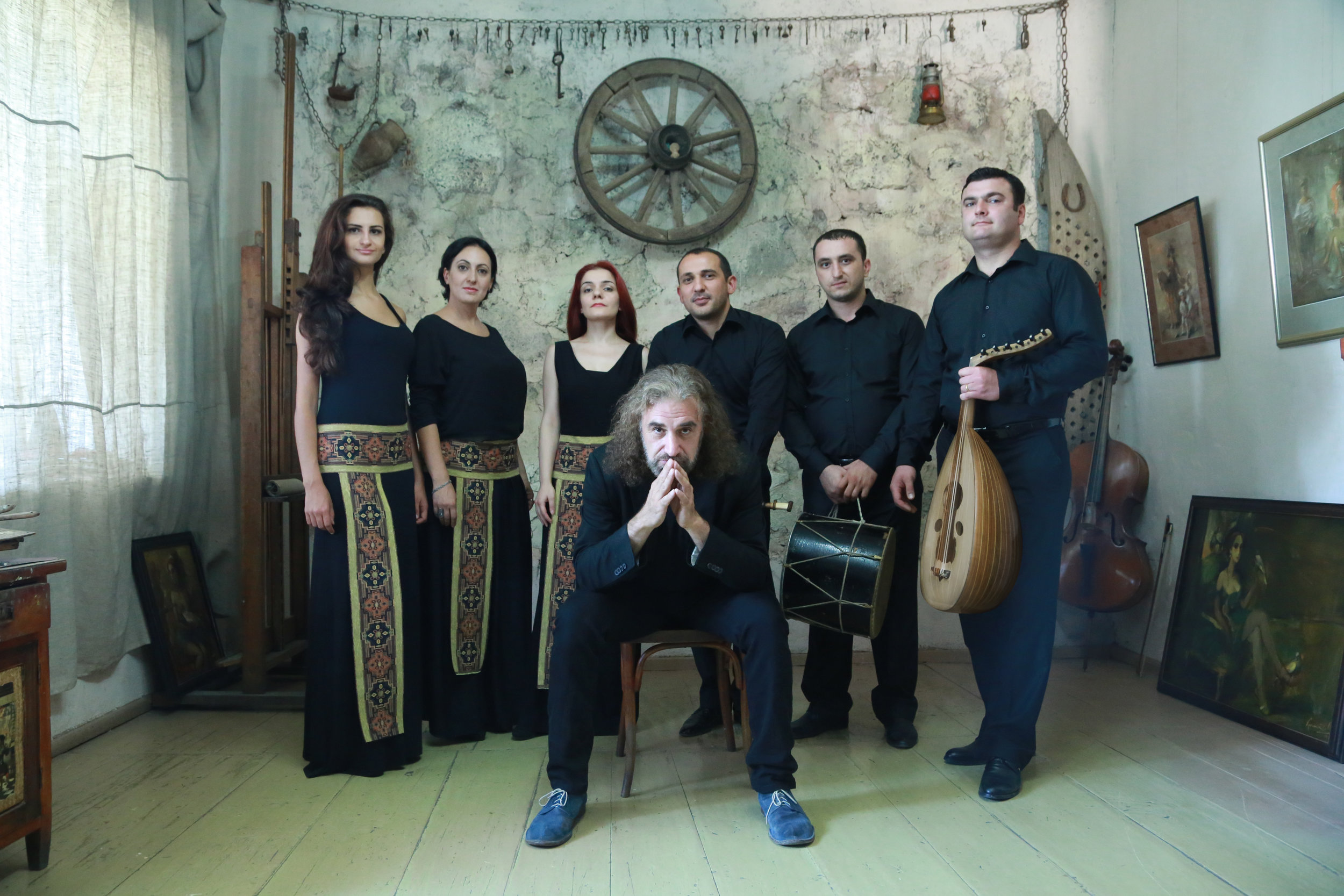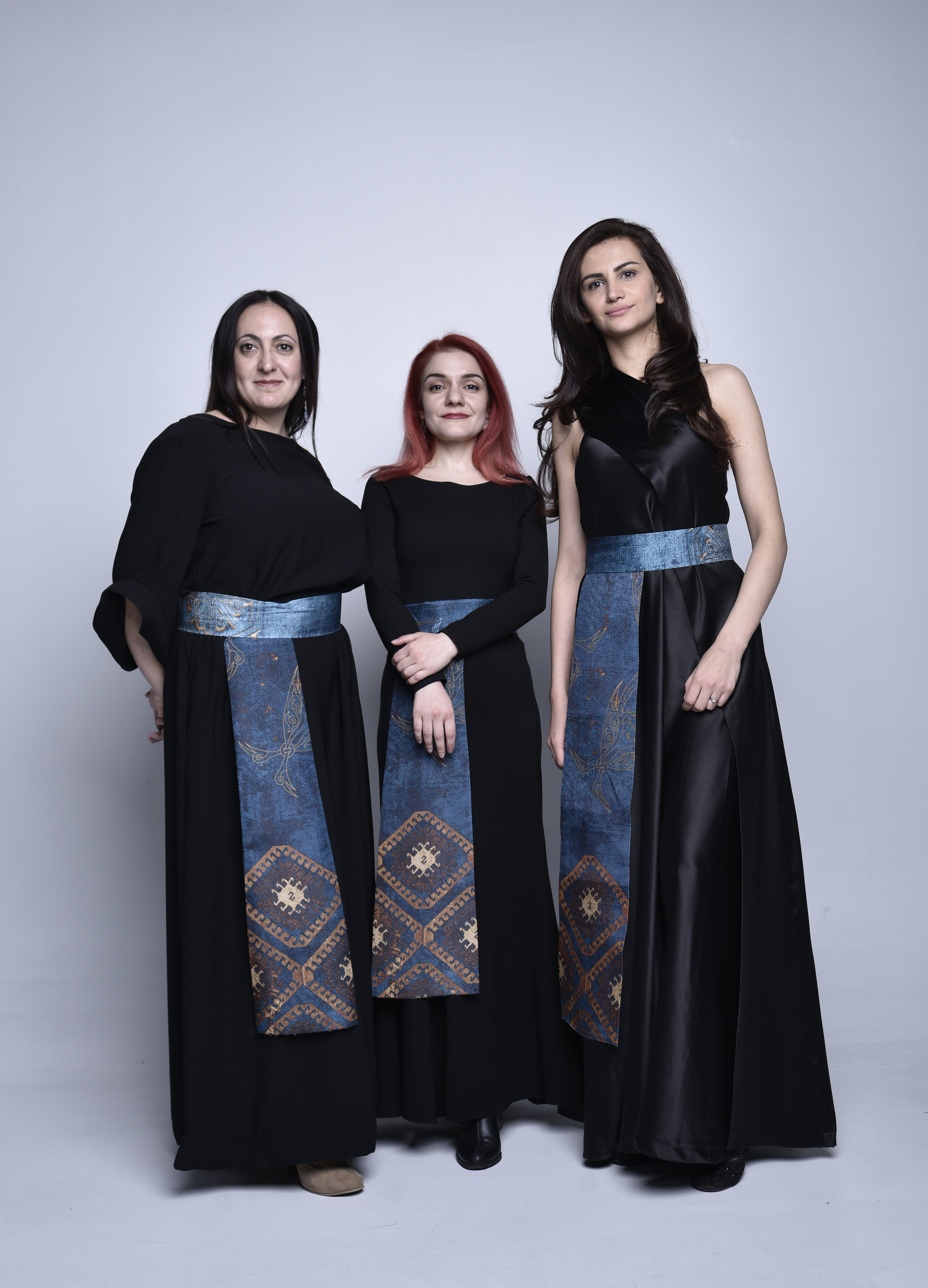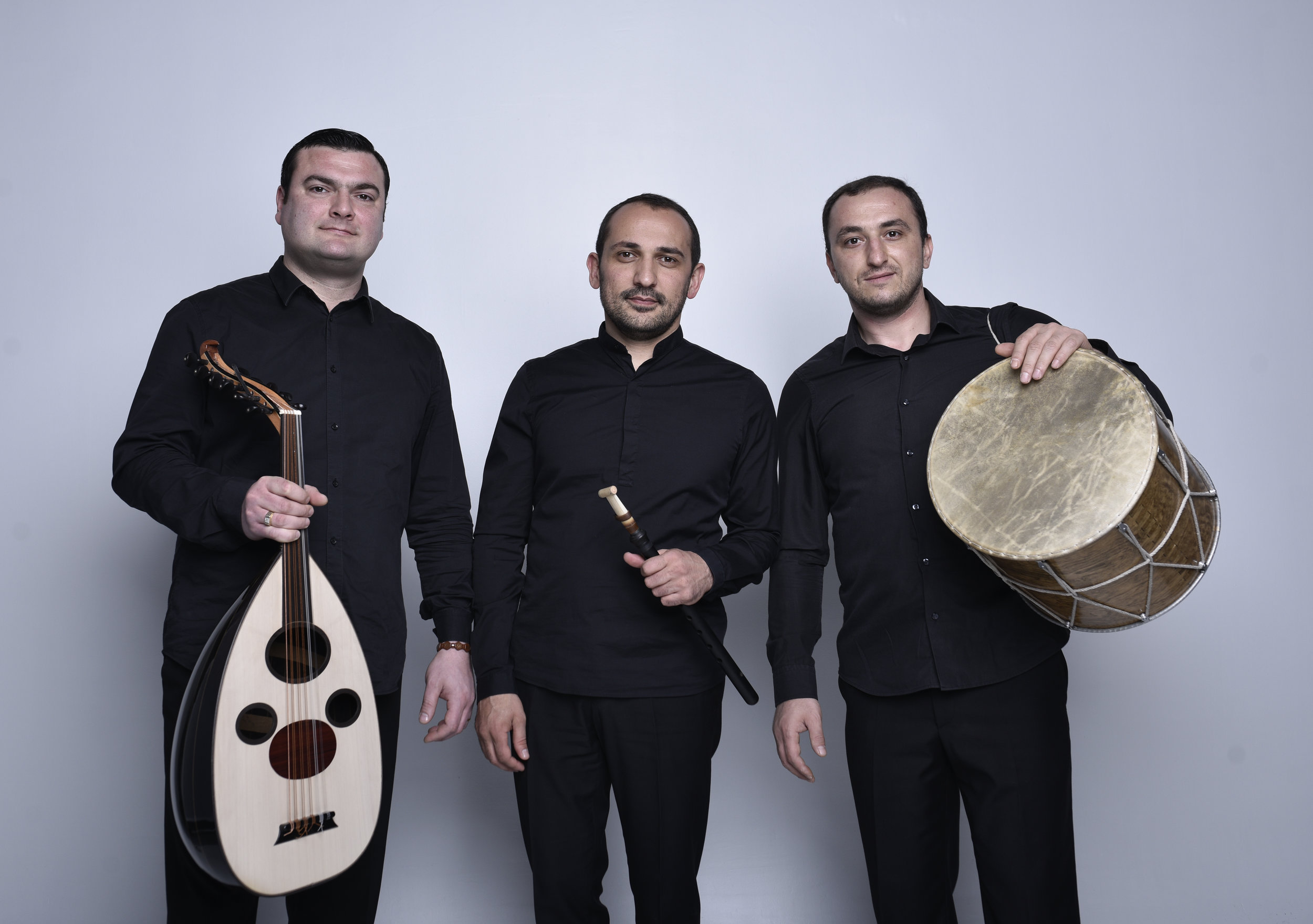
Can you tell us about the origins of The Naghash Ensemble?
HODIAN: The idea for The Naghash Ensemble came soon after I had moved to Armenia in 2008. I used to love to get out of Yerevan on weekends and drive to different parts of the country. I was wandering around outside of Garni temple early in the morning when I suddenly heard the most haunting and beautiful sound ever. It turned out to be the voice of Hasmik Baghdasaryan. She was singing medieval Armenian spiritual music, and I was completely mesmerized. The sound of her voice and the acoustics of that temple haunted me for days afterwards. I became determined to do something new with this sound.

After years of searching, how were you able to finally find the right text to associate with Hasmik’s voice?
I knew I had to find just the right texts to go with the music I was hearing in my head. I spent years searching in libraries in Yerevan, Berlin and New York, but nothing seemed right until I came across a small fragment of text by the little known medieval Armenian poet and priest, Mkrtich Naghash. Naghash lived in the 1500s and had a huge following in Diyarbakir where he built a church with a steeple that was higher than any of the local mosques. He was told repeatedly to take it down, but he refused and ended up being forced into exile, unable to see his friends and family again. All he left behind were 15 poems, most of which deal with the hardships of life in exile, which is, of course, something that many Armenians can relate to. Also, Naghash was working in what was basically an orally transmitted tradition and his poems were meant to be sung. We have no way of knowing what this music sounded like in his time, but Naghash’s words are all perfectly rhymed quatrains and have a beautiful inherent musicality.
The music of The Naghash Ensemble feels eclectic, perhaps a genre that intertwines the past, present and future. How would you describe it?
Describing this music is always hard, but it is an outgrowth of my varied musical upbringing. I grew up in Philadelphia in a very tight-knit Armenian community, and all the music we had at home was Armenian, as was all the music at church, at weddings, funerals, parties etc. On the other hand, most of my training was in European classical music, and I have a masters degree in composition and conducting. I have always gone through stages of being obsessed with different musical styles or individual composers. There were periods when all I wanted to play was Bach or Stravinsky or medieval polyphonic vocal music. At the same time, as a composer, I was also involved in whatever was the avant-garde at the time, and I was particularly influenced by the American minimalists, people like Phil Glass and Steve Reich. And, of course, growing up in America you are constantly hearing contemporary popular music, which is everything from singer-songwriters to urban funk. The music I write for The Naghash ensemble reflects all of those influences.
For practical reasons it has been a bit of a marketing challenge as to how to categorize The Naghash Ensemble’s music. Most of the venues we play in are considered “classical” music halls that are willing to take a broader view of “classical music.” We also play many “world music” and “sacred music” festivals. Lately, we have even been appearing at rock festivals, and this year we played at Les Transmusicales which is one of Europe’s biggest alternative rock music festivals known for their cutting edge hip-hop artists, DJs and alt-rockers. And we were the headliner!

Talk about using traditional Armenian music as a source of inspiration.
As a composer, I only follow my instincts. I don’t consciously try to sound “Armenian” or traditional or avant-garde. The music is a natural result of so many different influences. Stravinsky had a wonderful quote which was “Bad composers borrow, good composers steal.” It’s interesting to think about it. When you borrow something, it isn’t yours, and you can only use it in a superficial way. These kinds of “borrowings” lead to a pastiche of styles that seem inauthentic like putting techno beats underneath the chanting medieval monks. It does a disservice to both styles of music. But when you “steal,” it becomes part of you, and you can do anything you want with the music. I have stolen from many sources including from a good deal of Armenian folk and spiritual music, but it is a question of how you use these things and how deep you go with them.
Armenians have such a strong sense of their cultural traditions, but we have to remember that these “traditions” were all born of “innovation.” Komitas is regarded as the keeper of the flame for traditional Armenian music, but I think his true genius was as an innovator in combining traditional Armenian folk and spiritual songs with the new technologies of the time, such as European instruments and western tuning systems. Komitas’ innovation was to synthesize his deep knowledge of Armenian traditional music with his equally deep knowledge of European classical music, filter it through his particular genius and come up with something transcendent.
Why are these poems still relevant today?
These texts seem to transcend time. To me, it is amazing how relevant Naghash’s poems are today with so many people all over the world still being forced to live away from their homeland. They were originally written to address the common man of Naghash’s time, but they still speak to us in the 21st century. It is as if nothing has changed in 500 years. Prejudice, religious intolerance, fear and ignorance seem to be an unchanging part of the human condition.
What is the Kickstarter?
One of the major benefits of this new interconnected age is that we are able to do away with the gatekeepers of culture. I don’t have to wait for a corporate record company to say it is OK for me to record. Instead, we can bring the music directly to people, and they can decide if it is something they want to support. Creating such high quality products is time-consuming and expensive. Each of our CDs is accompanied by a book with Naghash’s poems, multiple essays and lots of pictures and information all translated into English, German, French and Armenian. Through crowdfunding, we are able to ask our audience to be directly involved in supporting our work, and they can do so at any level they are comfortable. For us, Kickstarter is a wonderful platform because our supporters know whatever money they give goes directly to the work we are doing. Plus the energy that goes into the Kickstarter draws a lot of new people to the music of The Naghash Ensemble, so our fan base continues to expand. There is nothing better than getting messages from complete strangers saying how moved they are by the work or how excited they were to have discovered it.



Be the first to comment